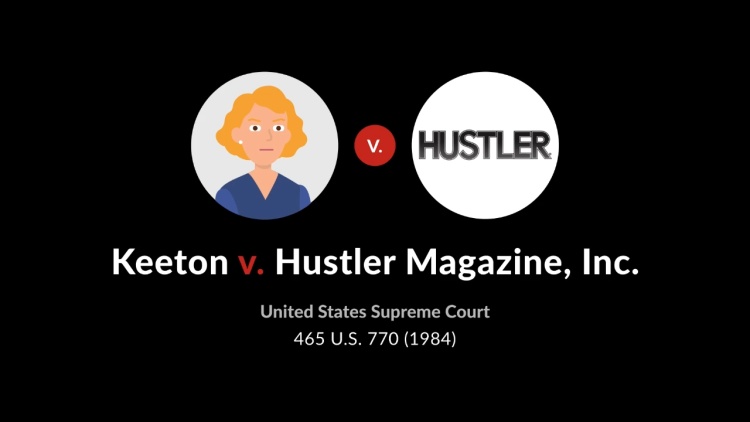Keeton v. Hustler Magazine, Inc.
Supreme Court of the United States
465 U.S. 770 (1984)
- Written by DeAnna Swearingen, LLM
Facts
Kathy Keeton (plaintiff), a resident of New York, sued Hustler Magazine, Inc. (Hustler) and others (defendants) for libel in the United States District Court for the District of New Hampshire under its diversity jurisdiction. Keeton claims that Hustler committed libel against her in five issues of its magazine published between 1975 and 1976. Keeton has no contacts with the state of New Hampshire other than through a magazine she helps produce. Hustler is a corporation organized under the laws of Ohio, and its principal place of business is in California. Hustler sells between 10,000 and 15,000 copies of its magazine in New Hampshire per month. The district court dismissed the complaint for lack of personal jurisdiction. The court of appeals affirmed on the ground that Keeton lacked sufficient contacts with New Hampshire to justify the state’s personal jurisdiction over Hustler. Further, the court of appeals placed significant weight on the fact that New Hampshire’s six-year statute of limitations for libel made it the only state in which Keeton’s suit could still be brought and that the “single publication rule” meant that, if successful, Keeton would be able to recover for damages suffered in all fifty states. For these reasons, the court of appeals considered personal jurisdiction over Hustler unfair. Keeton petitioned the United States Supreme Court for certiorari, which was granted.
Rule of Law
Issue
Holding and Reasoning (Rehnquist, J.)
Concurrence (Brennan, J.)
What to do next…
Here's why 909,000 law students have relied on our case briefs:
- Written by law professors and practitioners, not other law students. 47,100 briefs, keyed to 997 casebooks. Top-notch customer support.
- The right amount of information, includes the facts, issues, rule of law, holding and reasoning, and any concurrences and dissents.
- Access in your classes, works on your mobile and tablet. Massive library of related video lessons and high quality multiple-choice questions.
- Easy to use, uniform format for every case brief. Written in plain English, not in legalese. Our briefs summarize and simplify; they don’t just repeat the court’s language.








